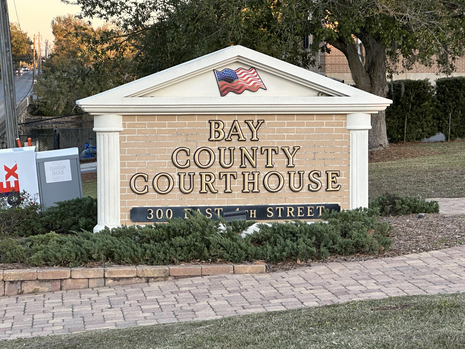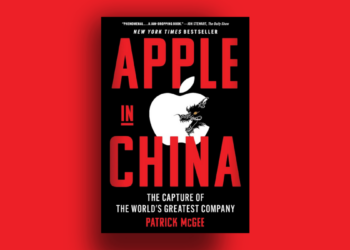 After waiting more than month for a decision, Judge William Scott Henry of Florida’s 14th Judicial Circuit granted two motions to dismiss on a pair of defamation suits against The Associated Press and Puck News. The cases were brought by Navy veteran Zachary Young in the wake of his successful defamation case brought against CNN in the same court and before the same judge.
After waiting more than month for a decision, Judge William Scott Henry of Florida’s 14th Judicial Circuit granted two motions to dismiss on a pair of defamation suits against The Associated Press and Puck News. The cases were brought by Navy veteran Zachary Young in the wake of his successful defamation case brought against CNN in the same court and before the same judge.
Young took issue with the framing and language use in the AP and Puck’s reports of his victory over CNN. He insisted that they tried to cast doubt on the legitimacy of his win and used similar language to CNN against him.
Judge Henry opened both his rulings with the same quip comparing the cases to a bad sequel that was nothing more than a money grab:
It is said that for some movies or television shows, sequels, spinoffs or reboots should not be made.’ Often times, the story line is forced, new characters are not properly developed, inconsistencies arise between the original plot and the sequel’s, or the writers and producers are just lazy trying to cash in on a previously successful idea. These same things can be said of this case.
Key to Young’s argument against the AP was their use of the word “smuggle” which he argued came with negative connotations of illegality. On that point, Judge Henry wrote:
Plaintiffs point to the phrase “helped smuggle people out of Afghanistan” and specifically the word “smuggle” to allege that Defendant was responsible for defamation per se against Young since it accused him of committing a felony. Additionally, he relies upon the ruling in the CNN Case where the Court found that Young had not committed a crime to demonstrate the falsity of this accusation.° Whether a statement is defamatory or not is a question of law.
(…)
There are a multitude of cases where charged language was found to be non-actionable “rhetorical hyperbole,” “vigorous epithet,” exaggeration or figurative use of terminology for dramatic effect.
(…)
Plaintiffs point to the AP Stylebook, Black’s Law Dictionary and other dictionary definitions for the meaning of the word “smuggle” to justify the claim that this was defamatory. While defining a particular word is helpful, one must also look to the context for how it was used.

In his ruling granting Puck’s motion to dismiss, Judge Henry seemingly continued his analogy of comparing the fallout suits to spinoffs and reboots:
This case involves Defendant’s reporting on the CNN Case and Plaintiffs’ claim that this reporting again defamed them. However, upon parsing what Plaintiffs allege was defamatory, this story line is forced. Relative to their motion to amend, the plot is insufficiently developed.
And at the end of the day, this lawsuit appears to be an attempt to repackage the CNN lawsuit to cash in again. For the reasons as will be explained below, Defendant’s Motion to Dismiss is due to be granted…
Part of Young’s argument against Puck was that they didn’t reach out to his side for comment while seemingly having close ties with CNN, even publishing their trial strategy weeks prior; and not giving a full update to their readers about his pre-trial wins.
On those points, Judge Henry wrote:
Based upon a review of the Articles, they are substantially correct accounts of what was transpiring in the CNN Case at the time. Even if Plaintiffs are correct that information may have been omitted in certain circumstances and the reporting may have been biased towards CNN, this is of no moment. The fair reporting privilege still applies, and for this reason Defendant would be entitled to dismissal of the Amended Complaint.
This case is really no different than Huszar, Marder and Barbuto. The Articles were reporting on a lawsuit between Plaintiffs and CNN. The remarks that Plaintiffs primarily take issue with in the September Article were the words used in the CNN publication and, when read in context, properly attributed to CNN. While the Articles may not have contained each and every detail of the court proceedings, they presented a reasonably accurate account of filings and hearings in the CNN Case. And even if Plaintiffs feel that the Articles were biased against them or left out their side of the story, the fair reporting privilege still bars their claims.
(…)
Plaintiffs are factually incorrect in this statement that the information was not yet public.* The two witnesses referenced in the December Article, which was published on December 11, 2024, were Ralf Otto with Civil Fleet (a company that hired Young) and George McMillan (who reportedly had met with Young to discuss evacuations). Both of these witnesses were disclosed in CNN’s Fact Witness List filed on January 10, 2024 — over 11 months before the December Article.
In addition, the substance of their anticipated testimony was included in CNN’s Statement of Material Facts in Support of Summary Judgment along with the Declaration of Ralf Otto, both of which were filed August 1, 2024 — over 4 months before the December Article. All of the information about Otto and McMillan as contained in these filings render Plaintiffs’ allegation entirely incorrect.
Judge Henry concluded both rulings with the same movie/TV references:
This brings us back to the beginning. This case was a second sequel that should not have been made. Unlike the CNN Case, this case has a forced plot without any character development. Under applicable law, there is no villain. Rather, this is an attempt to repackage the CNN storyline against a different opponent. After screening this production, the Court determines that this sequel should not be released because, under the facts, this third installment does not work.
The ruling in the Puck case seemed to go a step further than AP case. Judge Henry ruling that he was dismissing the case “with prejudice,” which means it could not be appealed.
















